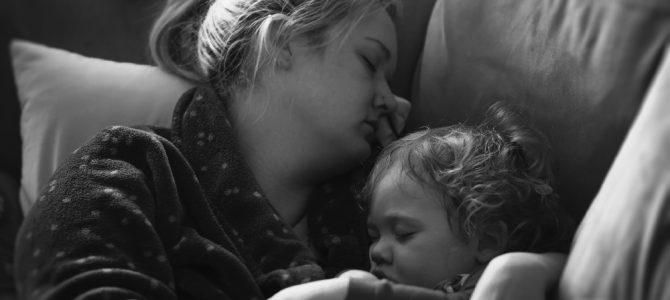
“Are you sure you should go?” my mother asked. Yes, I was. Positive. A family friend had just lost her newborn. How could I not go, unless attending the funeral would disturb her too greatly? But I had been assured the grieving mother would not be undone by the sight of a visibly pregnant mother, and would rather have more people, not fewer, to remember her child’s brief life. So I went.
The child had died of SIDS. The coroner said nothing could have prevented it. It was just one of those things. The grieving mother, though, believed the truth might be otherwise. Her pregnancy had not been ideal from the start. She had made choices she now wished she could unmake. No one could wish to add to her grief by agreeing with her, at least not when the grief was so fresh. But her regrets were understandable.
She had smoked during pregnancy, and drunk far more than even those who permit alcohol during pregnancy allow. Perhaps surprisingly, then, she had followed her doctor’s advice to discontinue her asthma and antidepressant prescriptions when she learned of the pregnancy, and she stayed off those prescriptions faithfully, no matter how bad things got. Would she have smoked and drunk less had she not stopped her prescribed drugs? The likelihood that she would have bothered her.
There were other sources of regret. She had become pregnant while only engaged to her fiancé. In fact, their wedding plans had to be canceled because of their child’s funeral. Youthful misadventures, including a previous abortion, had left her with scars that may have affected her child’s growth in utero. For a while, she had openly wondered whether she should just abort again, although not even her closest relatives could tell whether it was really her talking at the time, or just the lack of meds. Nonetheless, once her baby was born, it was greatly loved. Doted on. Adored. And then … gone. Dead.
Two Mothers with Distressing Pregnancies
Mine hadn’t been an ideal pregnancy from the start, either. Tubal pregnancy symptoms are nonspecific, and while I suspected my symptoms had another cause, my OB disagreed with me strongly enough to order me straight to an ER one afternoon for an emergency ultrasound. There, if the ultrasound revealed a tubal pregnancy, the pregnancy would have been terminated. I remember sitting on an exam table, heels kicking the drape of crinkly paper as I stared at a green wall, wondering how much a termination would feel like taking a life.
Like the grieving mother, I had done what’s considered the responsible thing and curtailed prescription drug use upon learning of my pregnancy. Like the grieving mother, that included greatly reducing asthma treatment (I could not stop it entirely) and discontinuing an antidepressant.
Also like the grieving mother, I found the effects unpleasant enough to do some drinking of my own, though my tipple of choice was coffee, non-decaf. Pregnant women are advised against caffeine consumption, too, of course, but compared to other migraine drugs, including the fairly “conception friendly” antidepressant I was nonetheless instructed to stop immediately upon learning of pregnancy, caffeine may the most pregnancy-safe anti-migraine drug out there, with a long history of mostly unproblematic use. And clearly, my attempts to “just tough it out” unmedicated weren’t working terribly well.
Even with the sweet, sweet caffeine back in my system, it took through the second trimester to recognize those ineffable — and shameful — urges to hurl myself (and my unborn child) off a cliff closely coincided with periods of reduced lung function, a riddle only solved by increasing my prescription drug use, knowing that doing so came with some poorly understood risks to my child.
So, like the grieving mother, I know what it’s like to find pregnancy intensely distressing. Unlike the grieving mother, I couldn’t picture myself living with an abortion — although, again like the grieving mother, abortion was briefly, but memorably, the choice before me during the tubal pregnancy scare. Unlike the grieving mother, I conceived under sociologically auspicious circumstances: I was married; I had not known the sort of youthful misadventures that might impair reproductive health or attachment to a spouse; my husband and I had already been saving up for children; and so on. I had the luxury of blaming much of my distress on the unnatural state of being alive in the first place, rather than on the “bad things” I’d done. The grieving mother had no such luxury.
Was It Mere Luck that My Child Lives?
I call it a luxury, but a moralist might counter that it was a luxury I had earned. After all, I had stuck more closely to the precepts of clean living in my youth than many women do these days. Even those who doubt chastity’s spiritual benefits acknowledge it’s a straightforward, if now rather awkward, means to avoid some practical calamities as well. Modern technology can do much to prevent or repair physical damage from sexual adventures. But a few unfortunates, even today, will, like my family friend, find their very bodies permanently scarred.
Unfortunates is a key word, though. As long as they’re reasonably prudent, many will suffer no tangible calamities from past vices. By contrast, for every risk I may have avoided inflicting on my child by avoiding traditional vices, it wasn’t hard to think of another risk I imposed through the other, albeit less traditionally disapproved of, choices (like, for example, the choice to marry and try for children in the first place).
Well, time passes and probabilities collapse into specific outcomes. The grieving mother’s beautiful, beautiful child, a porcelain doll come to life, was born in distress and sickly from the outset. My child entered the world uneventfully and in robust health, despite a risky pregnancy. Her child died. Mine has not. It might be tempting to ascribe these different outcomes to differing moral choices, but it’s probably more honest to say that both of us imposed about the same amount of risk on our children, just in different ways.
It’s Rational to Not Reduce All Risk
Once my own child was born, I went through all the motions of SIDS risk reduction. Of course I had her child’s death to motivate me, and proved far from perfect at risk reduction despite that extra motivation. Never fall asleep with your child? Never leave your child unattended, even briefly, with loose bedding or clothing? Yeah, that’s not gonna happen. Seeing that these things happen less is about all I run to. There are some risk factors no child of mine can ever avoid, although I had avoided several.
SIDS is rare enough that even an increased risk of it is still small; nonetheless, as the grieving mother realized all too keenly, knowledge that you’ve increased the risk to your own child becomes devastating if the risk ever materializes. My child is past the six-month mark now, so well past the peak of the lognormal distribution that characterizes SIDS death by age. During the time when my child’s SIDS risk was highest, what I feared most wasn’t his death, since I knew how unlikely it was even at peak risk. What I feared most was my culpability.
We rarely do all we can to prevent awful things from happening, and that’s not just because we’re irresponsible. Not being maximally risk-averse is also sensible. But then when the worst happens, we must find a way to live with the knowledge that we didn’t do all we could. No matter how good you’ve been, no matter how bad you’ve been, no parent is immune from this state of affairs. As a population, the good may earn better outcomes than the bad, but at the individual level, any number of things can render “virtue rewarded and vice punished” meaningless.
Do Your Best, and Leave the Rest
The grieving mother’s story has had a happier ending than it could have. It’s a bit optimistic to expect an engagement to survive the death of a child, but hers did, and not too soon after the funeral, she and her fiancé married quietly at the registrar’s. It wasn’t the dream wedding she had planned, but it was marriage, and now that they’re married, they’re having more children. Life goes on, and perhaps her grief will find redemption in different choices for the children she has now.
Infant mortality is now so low in the United States that a child dying after birth has become an exceptional, rather than mundane, tragedy, which only heightens the sense of culpability when it happens. Yet what we’re responsible for is the risk we choose, not the sheer dumb luck that lets one person escape likely disaster while inflicting on another unlikely tragedy.
Robert F. Scott, the famous Antarctic explorer, wrote just before his death, “We took risks, we knew we took them; things have come out against us, and therefore we have no cause for complaint, but bow to the will of Providence, determined still to do our best to the last.” Being a mother means the risks might come out against your innocent child instead. While it’s no cause for complaint (it’s just how thing are, after all), it will cause guilt and grief.
And no matter how disastrous our past choices, there’s no help for the past but to bow to the will of Providence, endeavoring to do the best we can, even when the aftermath of past disaster can be neither escaped nor rectified in this life.
This piece was first published at Ricochet.com.









